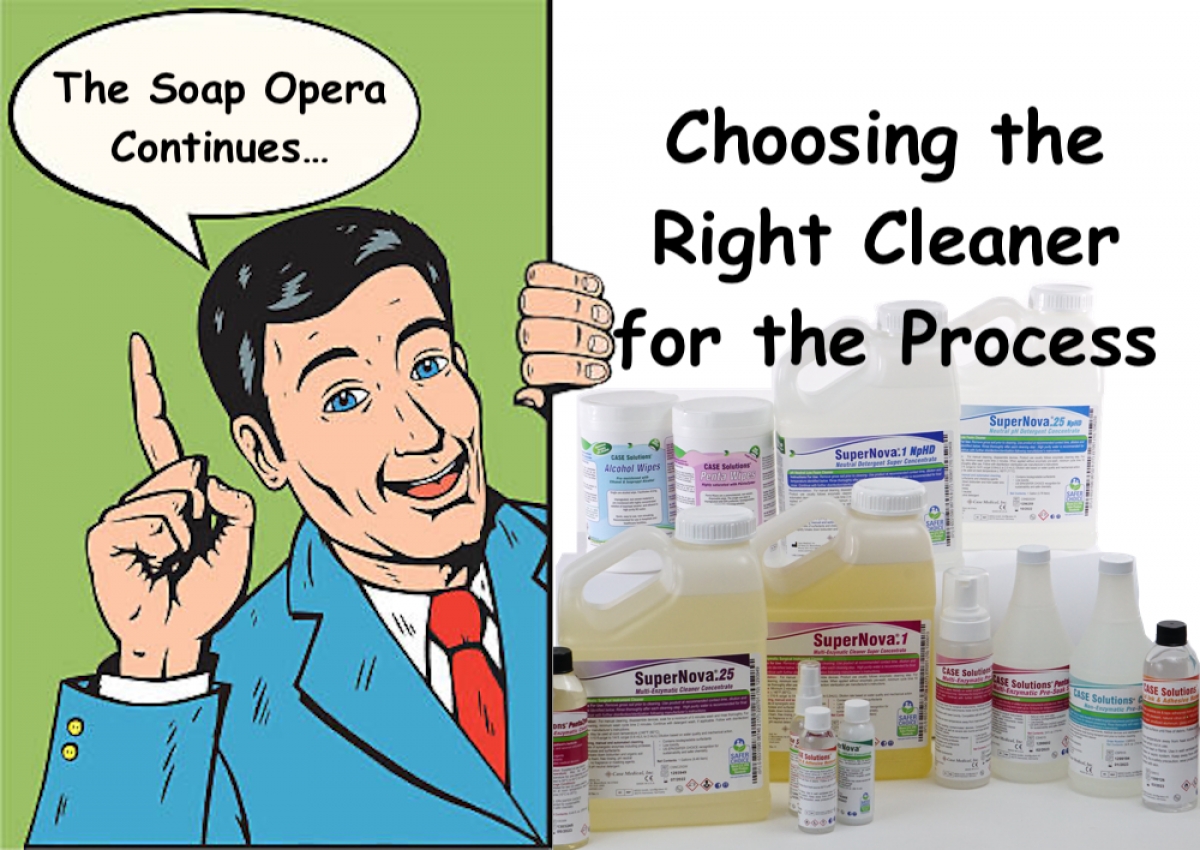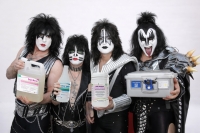Last week’s episode ended with a cliffhanger...
Here's more on the critical parameters for detergent selection.
“All cleaners are the same,” says vendor X. “Use only ours,” says the equipment supplier. We’ve heard some folks say, “We prefer the smell of wintergreen and the soothing color of blue or aquamarine.” “Why not dish detergent, it’s cheap?”
Our drama for this week is the tricky process of figuring out what type of cleaner to use for decontamination of reusable devices in automated washers! There are single, dual, and multi-enzymatic cleaners and non-enzymatic ones, pH neutral vs caustic or acidic cleaners, neutralizers, and rinse agents. Choosing the right product from the beginning will make your cleaning task easier, quicker, and more efficient. So, how do you know which product to use?


Dirt Is Dirt, Right?
Any Cleaner Can Work, Huh?
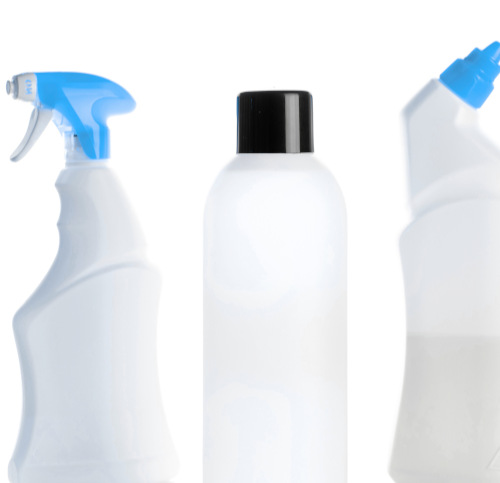
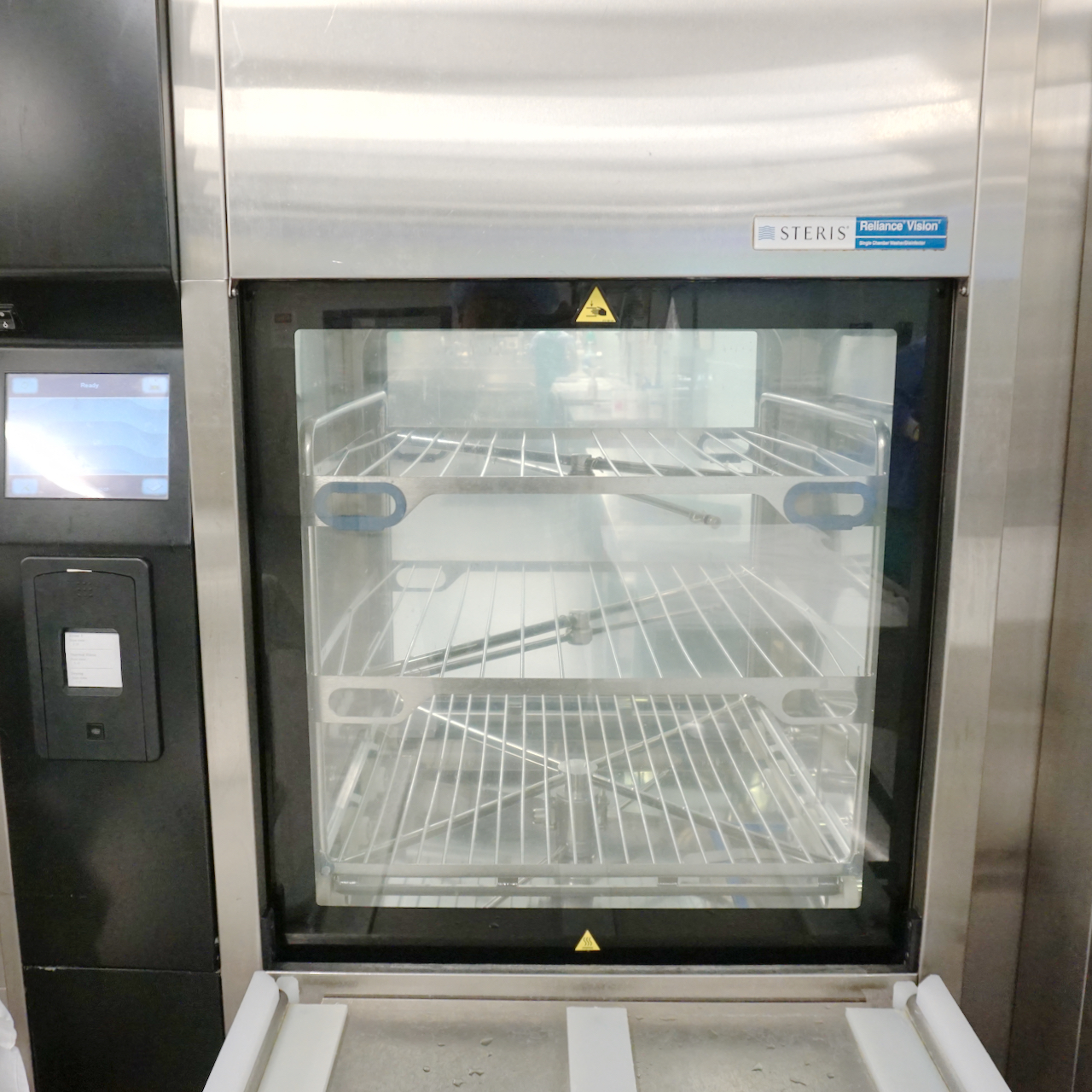
A Detergent For All Your Cleaning Needs
What then is best for cleaning all types of surgical devices?
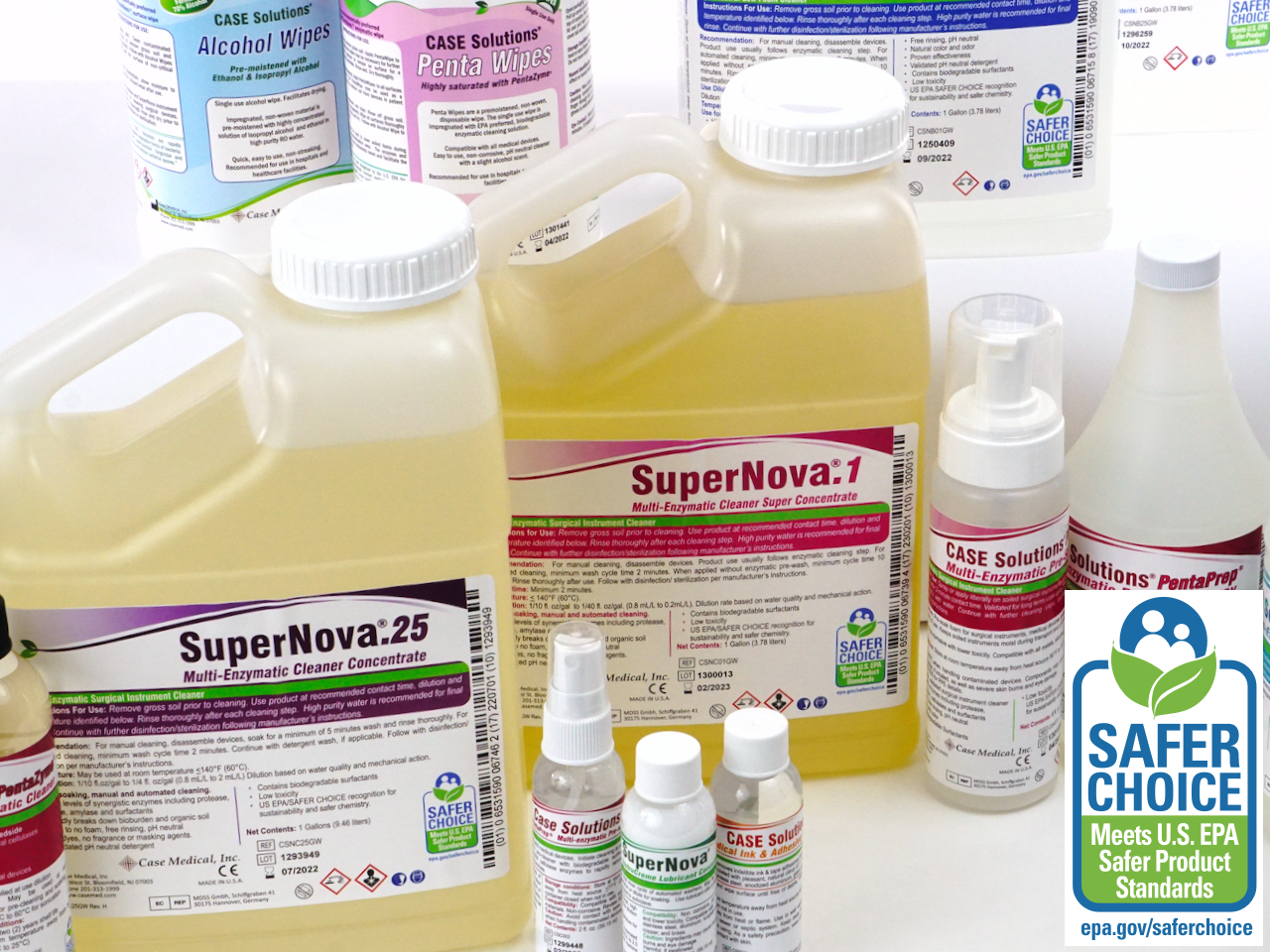
Case Medical, a US EPA Safer Choice Partner of the Year formulates, manufactures, and recommends a validated, pH neutral, low foaming, multi-enzymatic detergent, as the protagonist in fighting grime and bioburden. However, even the hero, like Batman has a sidekick that comes to the rescue. So if you have hard water, use a detergent with active chelating agents to follow the enzyme wash step, and provide even better results. Case Medical is here to help you find a cleaner that meets all your specifications and it may only take one.
Join us next week for a new episode of Case Medical's "Soap Opera"
Then, join us in February for a virtual event on sustainable instrument cleaning with industry and healthcare experts committed to best practices and safer chemical usage.

Visit us at www.casemed.com to learn more about our products and how they can help your facility lighten its impact on the environment for the good of us all.
Marcia Frieze and the Case Medical team


